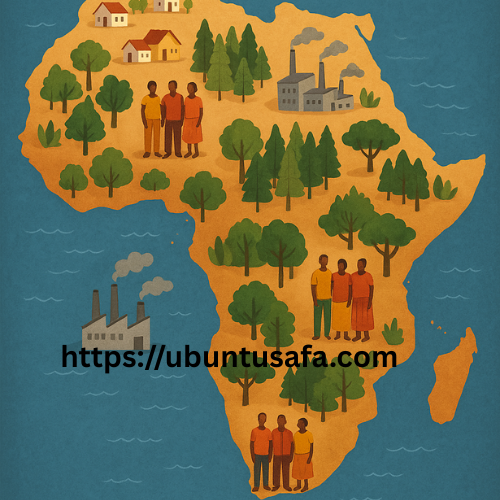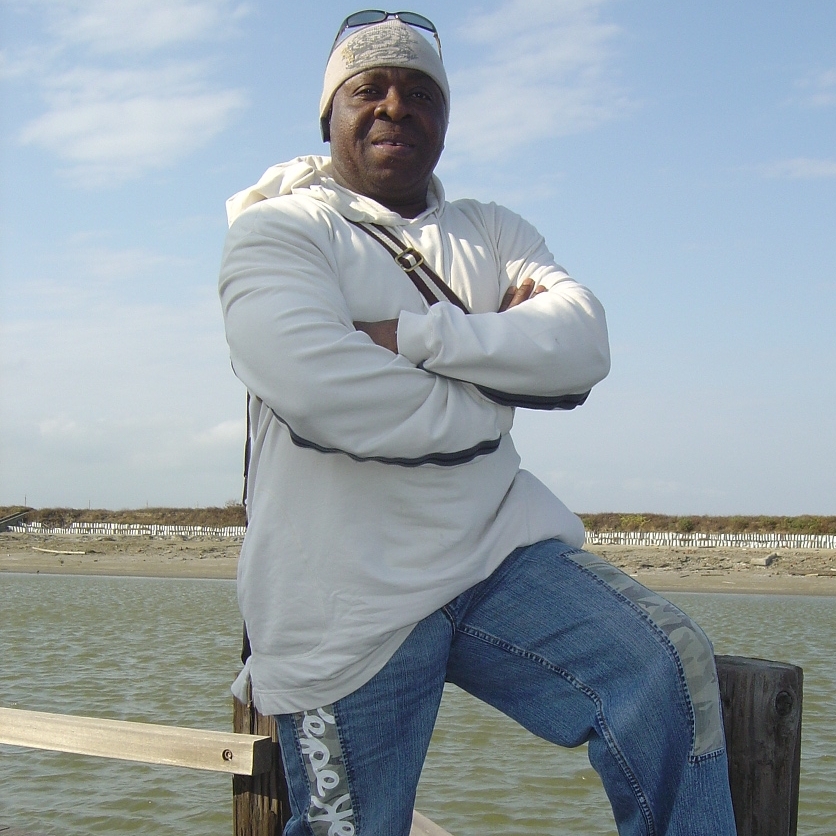1 Comments
0 Shares
8K Views
0 Reviews
Sponsored
"Those who believe they can do something
and those who believe they can't
are both right"
and those who believe they can't
are both right"
-
21239 Posts
-
1817 Photos
-
138 Videos
-
Followed by 129 people
Pinned Post
Please log in to like, share and comment!
Recent Updates
-
What they don’t teach you about how Israel’s creation displaced Palestinians and reshaped the Middle East.The creation of Israel is often taught as the fulfillment of a long-held dream of the Jewish people to return to their ancestral homeland, a narrative that focuses on the UN partition plan and the triumph of a new state against all odds. What's often overlooked is the profound and tragic human cost of this event: the mass displacement of hundreds of thousands of Palestinians from their...0 Comments 0 Shares 591 Views 0 Reviews
-
What they don’t teach you about Russia’s long-standing goal of securing warm-water ports.The search for a warm-water port is a central, and often overlooked, theme in Russian history and foreign policy. Russia's vast geography is a paradox: it is the largest country on Earth, yet it has historically been an island, hemmed in by frozen seas to the north and landlocked to the east and west. This geographical reality has created a deep-seated strategic imperative to secure...0 Comments 0 Shares 541 Views 0 Reviews
-
What they don’t teach you about how China’s Belt and Road Initiative is the modern Silk Road of control.While China's Belt and Road Initiative (BRI) is presented as a modern-day "Silk Road" of shared prosperity and infrastructure development, what's often left out is its role as a strategic tool for projecting Chinese power, gaining political leverage, and reshaping the global order in Beijing’s favor. Far from a purely economic project, the BRI is a sophisticated instrument of control,...0 Comments 0 Shares 540 Views 0 Reviews
-
What they don’t teach you about how modern liberalism is shaped by corporate and media influence.Modern liberalism, particularly in the United States and other Western democracies, is significantly shaped by corporate and media influence, despite its philosophical emphasis on individual liberty and democratic processes. This influence operates in subtle but powerful ways, often steering the political discourse, framing public debate, and defining the boundaries of what is considered...0 Comments 0 Shares 524 Views 0 Reviews
-
What they don’t teach you about NATO’s hidden role in provoking Cold War flashpoints.NATO's role in the Cold War is typically framed as a purely defensive one, a bulwark against Soviet expansionism. This narrative, while true in part, often overlooks a more complex and controversial aspect of the alliance: its proactive role in escalating certain Cold War flashpoints. By adopting aggressive doctrines, expanding its membership, and engaging in nuclear...0 Comments 0 Shares 530 Views 0 Reviews
-
Why are American elites more aligned with venture capital and Silicon Valley startups, while Chinese elites favor state-backed giants?American elites are aligned with venture capital and startups because their political economy is built on a decentralized, private-sector-led model that prioritizes competition and innovation. Chinese elites favor state-backed giants because their system is a centralized, top-down model that prioritizes national security, social stability, and global technological dominance. The American...0 Comments 0 Shares 578 Views 0 Reviews
-
Is Europe’s fragmented defense industry holding back its ability to match U.S. and Chinese advances?Europe’s fragmented defense industry is a primary reason it is struggling to match the pace of U.S. and Chinese military advances. The lack of a single, integrated European defense market leads to costly duplication, a failure to achieve economies of scale, and an inability to convert significant military spending into a unified technological advantage. The Problem of...0 Comments 0 Shares 398 Views 0 Reviews
-
How do U.S. policymakers balance economic interdependence with security fears in shaping future China policy?U.S. policymakers balance economic interdependence with security fears in shaping future China policy by shifting from a strategy of engagement to one of strategic competition. This new approach recognizes that while a full "decoupling" is economically unfeasible, certain dependencies on China, particularly in critical technologies and supply chains, pose significant national security risks....0 Comments 0 Shares 353 Views 0 Reviews
-
Could China’s partnerships in Latin America and the Caribbean indirectly weaken U.S. influence in its own hemisphere?China’s partnerships in Latin America and the Caribbean can indirectly weaken U.S. influence in its own hemisphere. China is doing this by challenging the U.S. as the region's dominant economic partner, offering an alternative model of engagement, and expanding its political and military presence in a way that undermines U.S. security interests. Economic Displacement...0 Comments 0 Shares 302 Views 0 Reviews
-
American democracy more dangerous than China Communism or any other Authoritarian government they often condemn."REVENGE"- What counts as “revenge” in this context By “revenge,” I mean actions by a sitting presidential administration that appear intended to punish, silence, weaken, or intimidate critics or political opponents — rather than simply enforcing laws neutrally. This includes: Prosecutions, investigations, or legal threats aimed at opponents Removing...0 Comments 0 Shares 756 Views 0 Reviews
-
Chinese leader Xi Jinping with the autocratic chiefs of Russia President Vladimir Putin and North Korea leader Kim Jong Un. Xi Jing ping gang up with Russia and North Korea against democratic and western aligned countries.The meeting of Xi Jinping with Putin and Kim Jong Un (sometimes portrayed as an “axis of authoritarian states”) sends strong signals and carries both opportunities and risks. What the meeting likely aims to achieve (Strategic motivations) Before jumping into pros and cons, it helps to see what each side might want: China / Xi: wants to project leadership in a multipolar...0 Comments 0 Shares 237 Views 0 Reviews
-
What they don’t teach you about how modern liberalism is shaped by corporate and media influence.Modern liberalism, particularly in the United States and other Western democracies, is significantly shaped by corporate and media influence, despite its philosophical emphasis on individual liberty and democratic processes. This influence operates in subtle but powerful ways, often steering the political discourse, framing public debate, and defining the boundaries of what is considered...0 Comments 0 Shares 283 Views 0 Reviews
-
What they don’t teach you about NATO’s hidden role in provoking Cold War flashpoints.NATO's role in the Cold War is typically framed as a purely defensive one, a bulwark against Soviet expansionism. This narrative, while true in part, often overlooks a more complex and controversial aspect of the alliance: its proactive role in escalating certain Cold War flashpoints. By adopting aggressive doctrines, expanding its membership, and engaging in nuclear...0 Comments 0 Shares 286 Views 0 Reviews
-
Why are American elites more aligned with venture capital and Silicon Valley startups, while Chinese elites favor state-backed giants?American elites are aligned with venture capital and startups because their political economy is built on a decentralized, private-sector-led model that prioritizes competition and innovation. Chinese elites favor state-backed giants because their system is a centralized, top-down model that prioritizes national security, social stability, and global technological dominance. The American...0 Comments 0 Shares 308 Views 0 Reviews
-
Is Europe’s fragmented defense industry holding back its ability to match U.S. and Chinese advances?Europe’s fragmented defense industry is a primary reason it is struggling to match the pace of U.S. and Chinese military advances. The lack of a single, integrated European defense market leads to costly duplication, a failure to achieve economies of scale, and an inability to convert significant military spending into a unified technological advantage. The Problem of...0 Comments 0 Shares 301 Views 0 Reviews
-
What are the security implications of Chinese investments in Canadian natural resources and technology sectors?Chinese investments in Canadian natural resources and technology sectors pose significant security implications, primarily by creating strategic dependencies on a foreign state and exposing critical sectors to economic and political coercion. The Canadian government has increasingly viewed these investments through a national security lens, moving away from a more open approach. Critical...0 Comments 0 Shares 294 Views 0 Reviews
-
How deep is China’s economic influence in Canada through trade in energy, minerals, and agriculture?China's economic influence in Canada is significant, particularly in the energy, minerals, and agriculture sectors, although it's characterized by a trade imbalance and a growing level of political scrutiny. China is a major buyer of Canada's raw resources and agricultural products, which provides a strong economic boost, but the relationship is also marked by trade disputes and a lack of...0 Comments 0 Shares 312 Views 0 Reviews
-
How do U.S. policymakers balance economic interdependence with security fears in shaping future China policy?U.S. policymakers balance economic interdependence with security fears in shaping future China policy by shifting from a strategy of engagement to one of strategic competition. This new approach recognizes that while a full "decoupling" is economically unfeasible, certain dependencies on China, particularly in critical technologies and supply chains, pose significant national security risks....0 Comments 0 Shares 306 Views 0 Reviews
-
Could China’s partnerships in Latin America and the Caribbean indirectly weaken U.S. influence in its own hemisphere?China’s partnerships in Latin America and the Caribbean can indirectly weaken U.S. influence in its own hemisphere. China is doing this by challenging the U.S. as the region's dominant economic partner, offering an alternative model of engagement, and expanding its political and military presence in a way that undermines U.S. security interests. Economic Displacement...0 Comments 0 Shares 283 Views 0 Reviews
-
How the US and Ukraine Can Redefine Drone DeterrenceThe Ukrainian UAV sector’s baptism by fire will make it a strategic asset for NATO defense in the years to come. Although the Russia-Ukraine war is the most drone-intensive conflict of the twenty-first century, the implications of this reality have only recently spilled beyond its borders. In August, Polish officials confirmed that Russian drones had crossed into...0 Comments 0 Shares 328 Views 0 Reviews
More Stories
Sponsored




